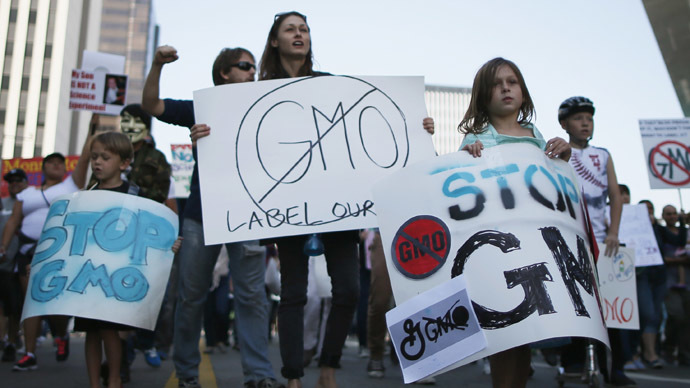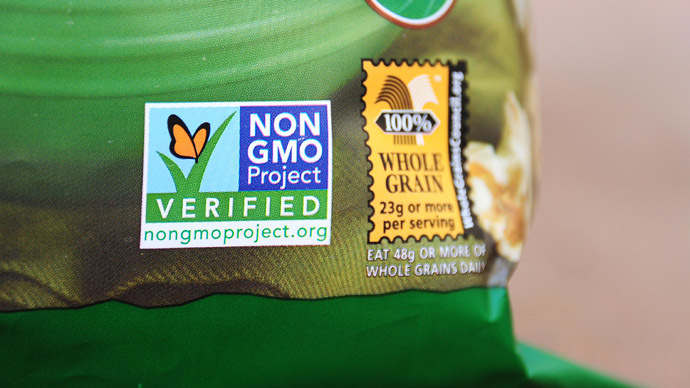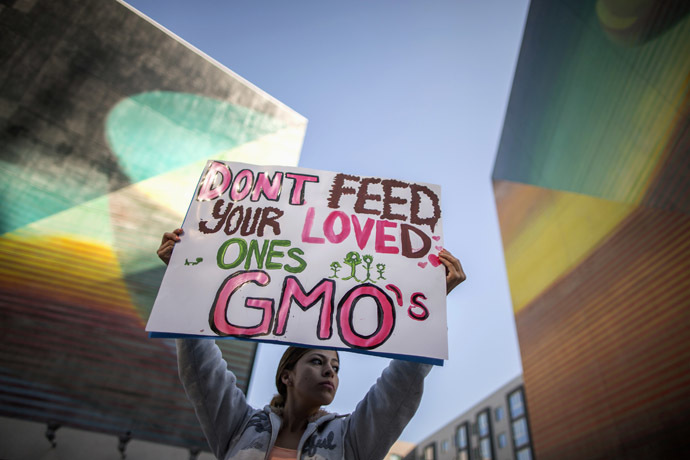GMO assessment has ‘failed’ at protecting public health – report

A basic principle in the classification of GMO foods is fundamentally flawed and “has failed miserably” at protecting public health, a study argues. The error has allowed companies to market potentially dangerous GMO products.
The principle itself is known as ‘substantial equivalence’ and is
the basis for the safety protocol used by most international food
regulators. It works off the idea that if a new food product
(GMOs in this case) are found to be similar to an
already-existing non-GMO product, then it can be treated the same
with regard to safety regulations.
However, the Australia-based Permaculture Research Institute has
revealed that new studies, independent of the biotech industry,
are showing up “glaring differences” between GMOs and
their non-GMO counterparts, suggesting the concept of substantial
equivalence is flawed.
“This makes a mockery of the regulatory principle of
‘Substantial Equivalence’ which has facilitated approvals of GMOs
with practically no protection for public health and the
environment,” writes a study published on Friday.
At present the international regulation bodies that use the
principle include the World Health Organization, the United
Nation’s Food and Agriculture Organization.

According to the report, the principle allows too much leeway for
potentially dangerous products to find their way onto the
consumer market. In practice a GMO crop is compared to any
existing variety of the same species, meaning that a product made
up of a collection of species is not treated differently.
Moreover, the tests that GMO products undergo to show they are
‘substantially equivalent’ to their counterparts are not nearly
detailed enough, writes the study.
“Traits used for comparisons are also based solely on gross
and insensitive chemical compositional tests such as levels of
carbohydrate, protein and sugars. This process cannot even begin
to tackle safety issues.”
The study cites research carried out by Professor El-Sayed
Shaltout at Alexandria University last year that found that
Monsanto’s 810 Corn (Ajeeb-YG®) was radically different to its
non-GM counterpart. Research revealed that Monsanto’s corn had
“abnormal levels” of amino acids and fatty acids, as
well as increased total protein, crude fat and decreased starch
content.

The full extent of the difference in the GMO corn was shown when
the product was tested on lab rats. After consuming the modified
corn the lab rats displayed a range of health problems, ranging
from tissue abnormalities to fatty degeneration in the liver and
congested blood cells in the kidneys.
The Permaculture Research Institute’s study recommends rigorous
research by independent organizations to examine and highlight
the differences between GMO products and their equivalents and
reassess the principle of substantial equivalence.
“In reality, genetic modification causes very real and
substantial, unpredictable and uncontrollable changes in the host
genome including mutations,” the study concludes, stressing
"GM crops have already been shown to cause damage to both
health and the environment in many independent studies.”














